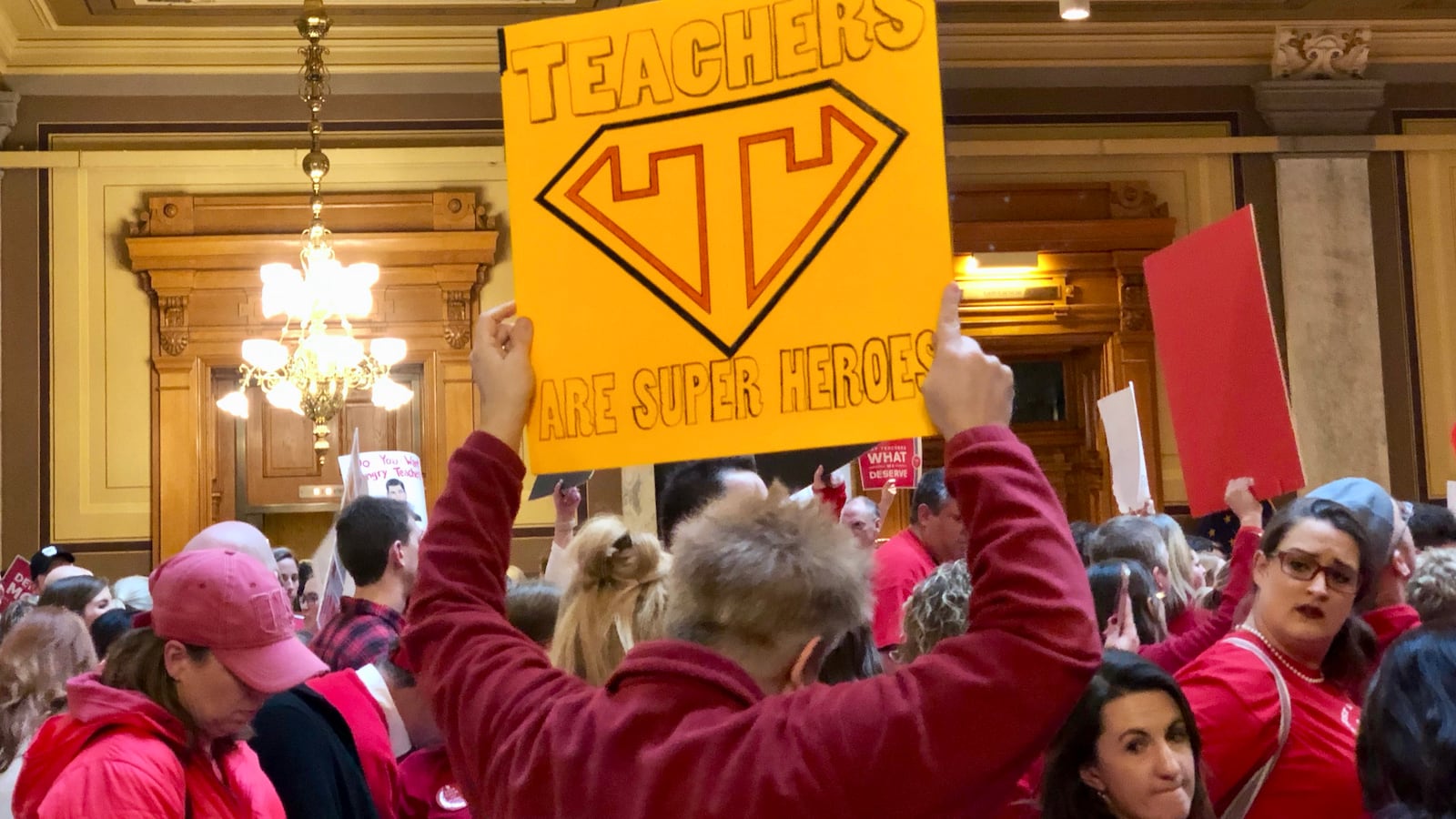An Indiana lawmaker is pressing forward on teacher pay — even though a state commission’s recommendations on the issue aren’t expected for nearly a year.
Rep. Ed DeLaney, D-Indianapolis, put forward a plan Monday to raise teachers’ salaries. Among his proposals: give districts incentives to set minimum pay at $40,000, and freeze corporate tax rates to pay for it.
DeLaney, who sits on the House education committee, knows his ideas will likely face an uphill battle with the state’s Republican supermajority, but said it’s important that the conversation around teacher pay not fade into the background while the governor’s commission mulls its recommendations.
“There is absolutely no need to wait for two years,” said DeLaney, who wants to see lawmakers take action sooner. “We are not creating rocket science here, we are simply trying to put money into a complex system.”
Indiana is so far behind neighboring states in teacher compensation that it would cost an estimated $658 million to make salaries more competitive, according to a January report. In 2016-17, Indiana teachers made an average salary of $50,554, according to the National Center for Education Statistics, compared to $61,602 in Illinois and $57,000 in Ohio. Starting salaries in Indiana, however, can be as low as $30,000.
Republican Gov. Eric Holcomb tasked a special commission with tackling the teacher pay question. But the 14-member group — composed of former corporate executives, a philanthropist, and nonprofit leaders — isn’t expected to finish its report and make recommendations until Aug. 2020, in advance of the next legislative session that sets the state budget for two years.
DeLaney wants to give school districts that raise their minimum teacher’s salary to $40,000 grants equivalent to about $100 per student. The state educates about 1 million public school students, so the incentives could cost as much as $100 million. Increasing starting salaries is a good place to start, he said, and pay increases would “ripple up” to more experienced teachers.
He proposed the same idea in a bill amendment in February, but it failed. This time around, DeLaney has a plan to pay for it: by freezing corporate tax rates, rather than lowering them as usual. Such a move would generate an additional $229 million over four years, DeLaney said.
His plan also suggests freeing up funds in school budgets for salaries. It would do this by providing additional state dollars for school counseling services since the ratio of counselors to students is well below the national average. Additionally, he wants to give more money to districts that receive less property tax revenue.
Andy Downs, a political scientist from Purdue University Fort Wayne, said the idea of a $40,000 minimum salary may appeal to voters and school districts because it leaves the decision to increase salaries up to local schools. But he said lawmakers are typically unwilling to open the budget when it has already been set. They will also likely oppose a tax freeze that could make the state less business-friendly.
“Those who do not want to increase teacher pay right now can say we are waiting on the rest of the analysis [from the governor’s commission],” Downs said. “That’s the easy excuse to not do anything.”
Rep. Bob Behning, an Indianapolis Republican who chairs the House Education Committee, did not respond to requests for comment Monday evening. He has previously said he will look at additional ways to “cut overhead costs and drive more dollars to teachers’ pockets” in the upcoming legislative session.
“We need to look at long-term, sustainable solutions to increase teacher pay,” Behning told Chalkbeat last month. “I will consider all sustainable options to increase teacher pay.”
Last session lawmakers pumped more money into schools overall — an increase of 2.5 percent — and freed up $70 million each year in retirement payments, which they hoped would send more money into teachers’ pockets. But the impact of the additional funding varies across districts and there’s no guarantee salaries will increase.
The state’s largest union, the Indiana State Teachers Association, has called on lawmakers to allocate more from the state’s surplus, an idea Behning previously said wasn’t sustainable. The union’s vice president, Jennifer Smith-Margraf, said in an email Monday that ISTA is looking forward to learning more about DeLaney’s proposals. The union’s goal is to reach a statewide average teacher’s salary of $60,000.
“I’m happy to hear legislators acknowledging that teacher pay and public school funding is a pressing issue,” she said.

